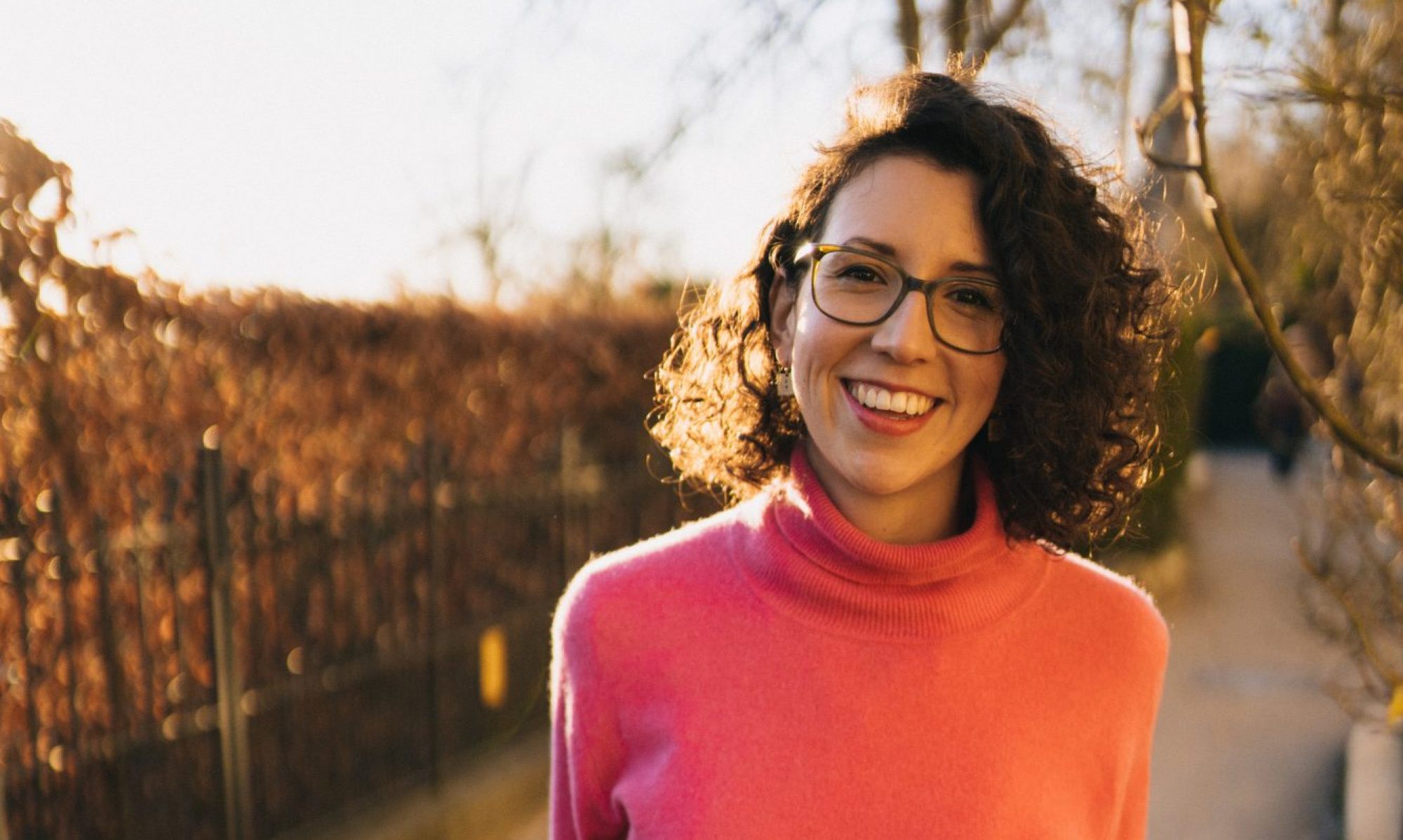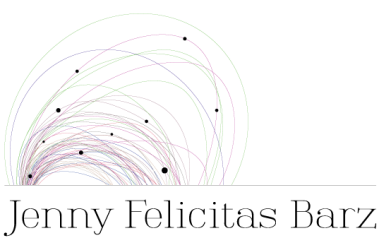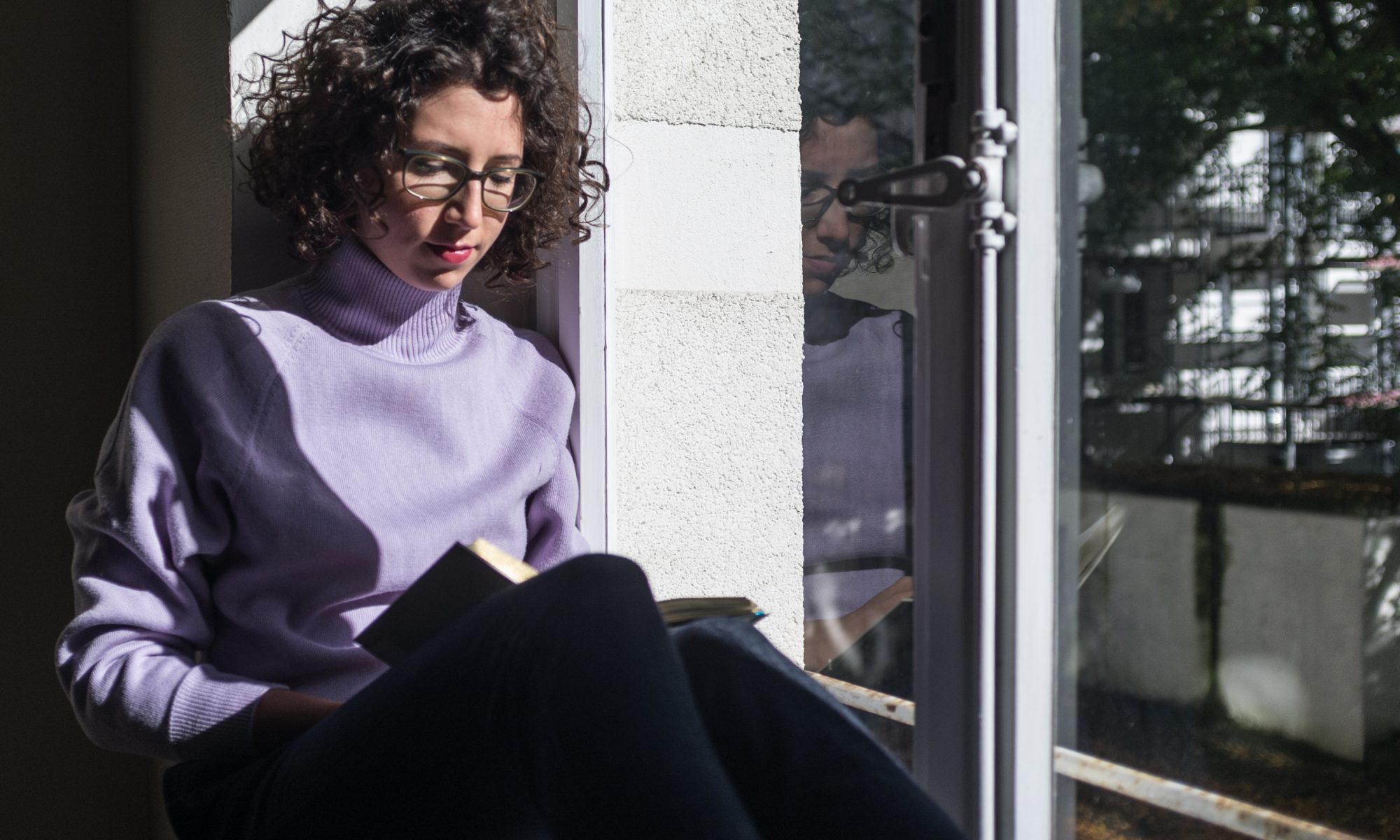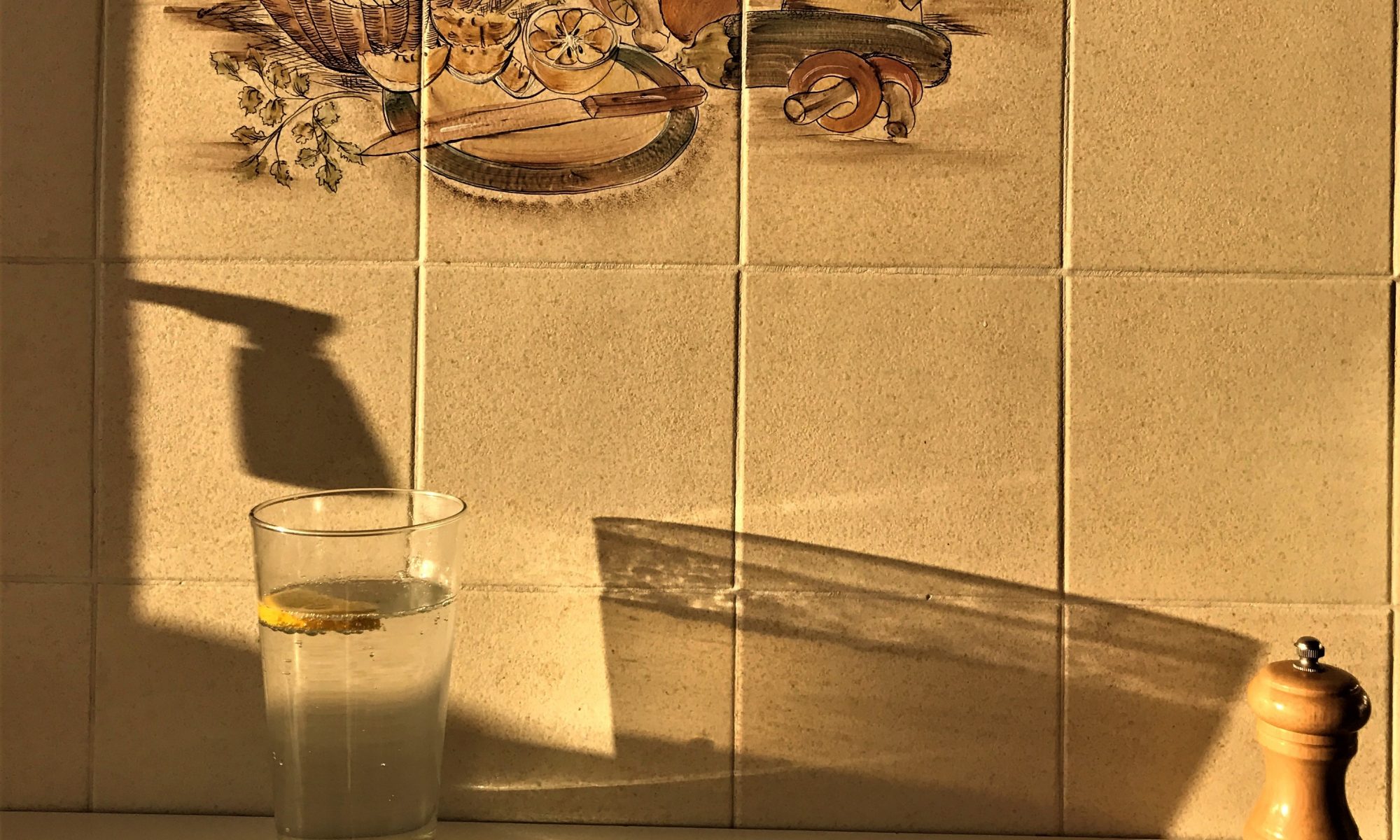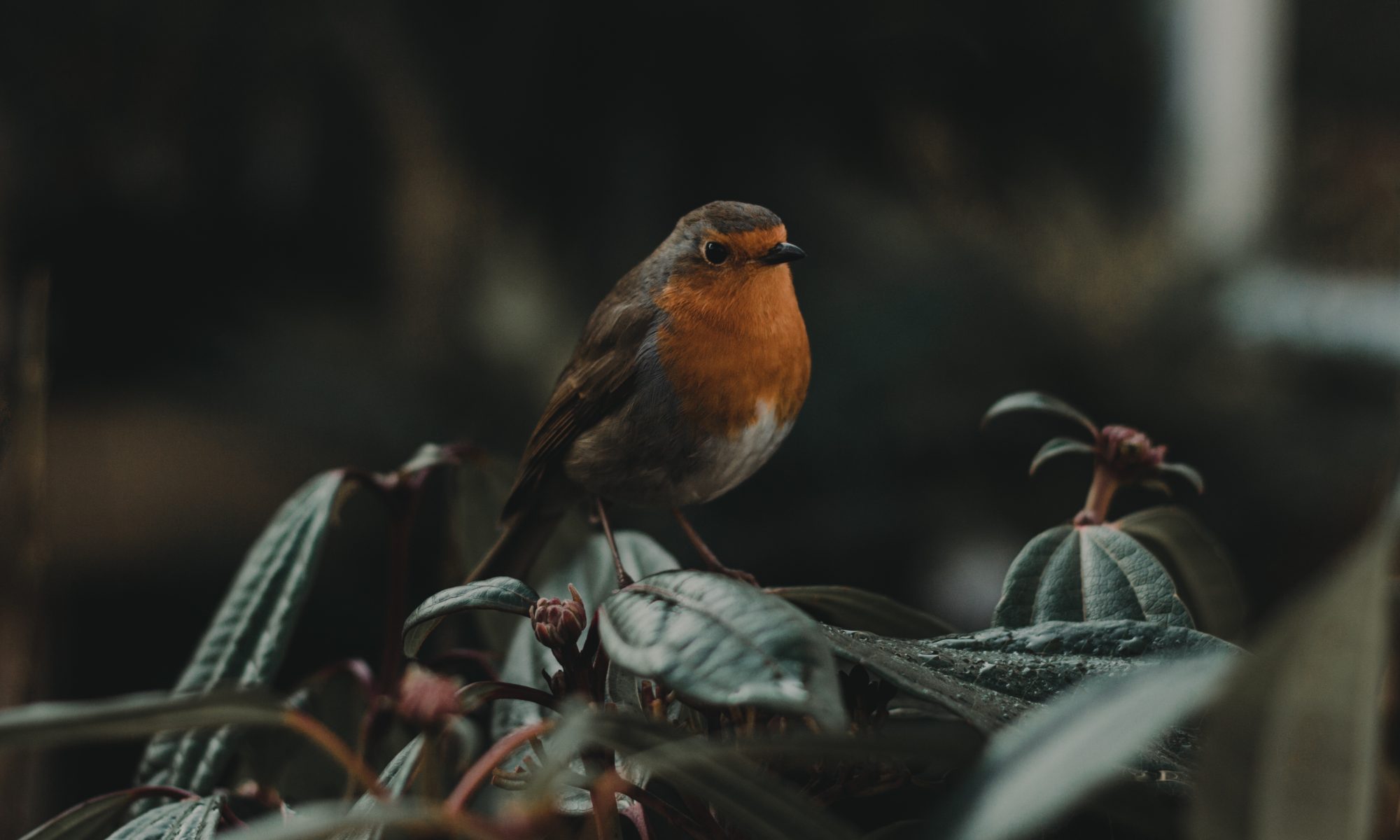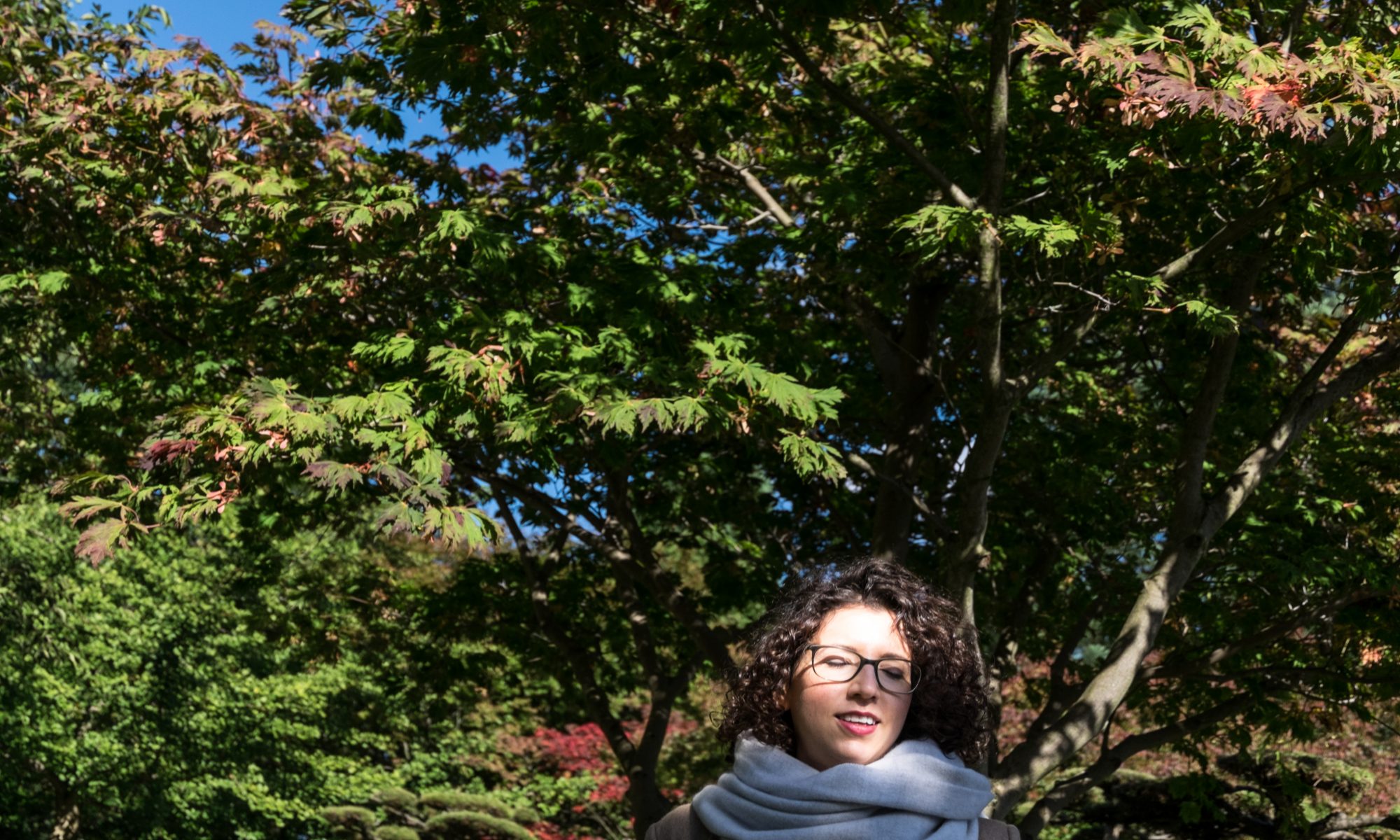Sorry, this entry is only available in German.
How to be more human and less perfect
How to be more human and less perfect
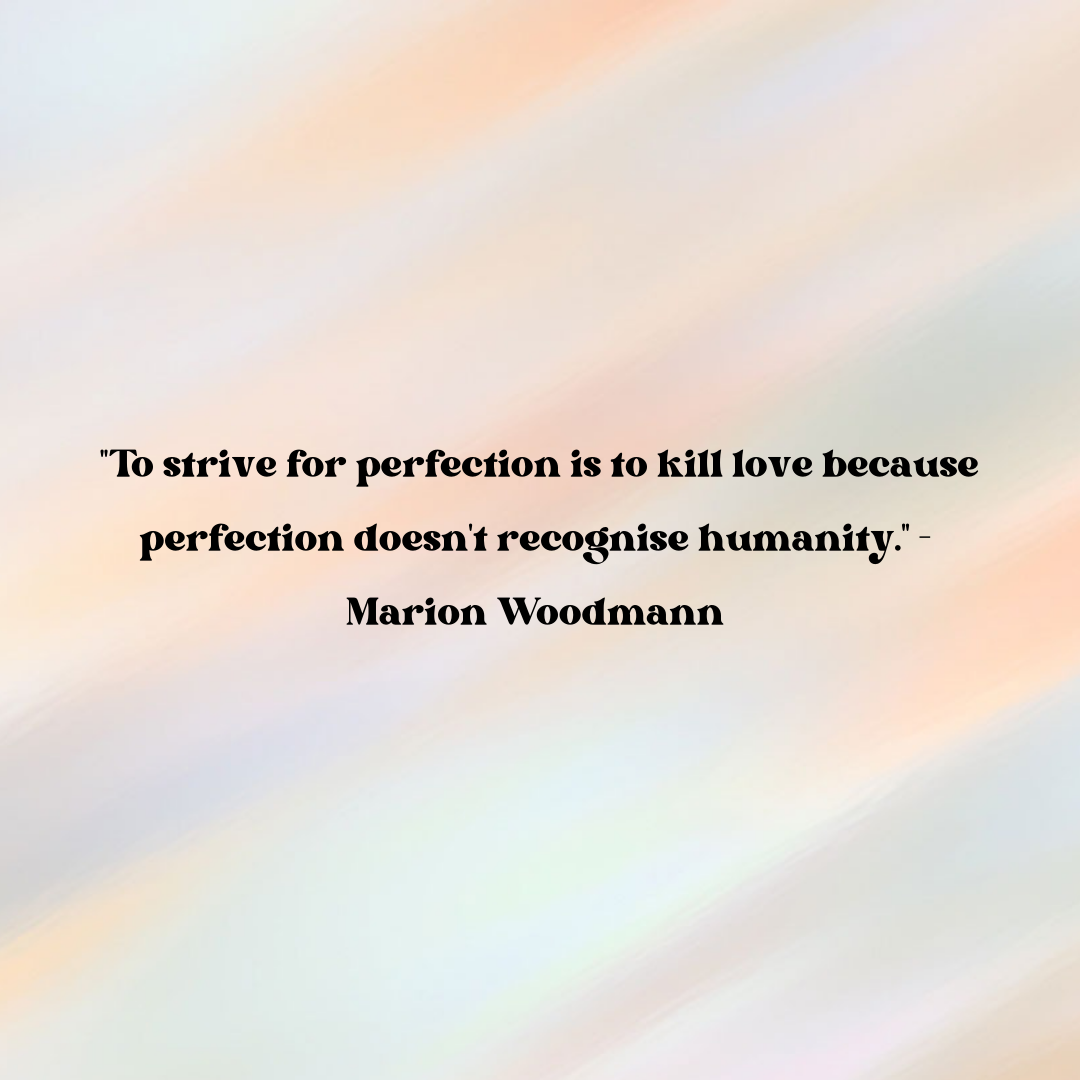
Aus addiction to perfection: “To strive for perfection is to kill love because perfection does not recognise humanity.” – Marion Woodmann
Perfectionism is a soul-crushing, life sucking, joy-flattening -ism.
When someone I date or work for tells me they’re a perfectionist – I run.
I didn’t always. Following its agenda when I was younger, I developed an eating disorder, an exercise addiction, shame for not being the perfect human being, shame for not being beautiful enough, shame, shame and maybe shame.
Perfectionism runs deep and since it has infected so many of us, we don’t question it often enough.
It deprives us of our humanity and denies us the celebration and light-heartedness we seek. It ridicules the colourful mistakes and natural flaws we contain as a human being. When we follow perfectionistic standards, anything other than perfect must be compensated with lying, harder work, better behaviour, better moral standards and still – this is the hell of it – won’t be good enough because “good enough” isn’t perfect.
It isn’t all bad, I suppose.
Perfectionism has brought us the technical evolution we see today but it has also stripped us of natural, compassionate human interaction with others and ourselves. Our focus isn’t the human being, but their mistakes and as a result we treat them coldly, kinda like we treat the internet when it stops working for a minute.
Within perfectionism – our work conversations sound cold and empty because any trace of human character is seen as “unprofessional”. In our relationships we hold each other to ridiculous standards that we cannot fulfil and must eventually disappoint. Our body will never the way it should be, it’ll always need tweaking and changing to finally please us perfectly.
It goes without saying that this monster needs to be caught and put in its place.
For this we need to shift in our priorities: Humanity, joy, feeling and compassion over perfectionism, appearance and control.
We have to change from mind-only- to mind-body connection.
This has to be a choice each of us can make.
Here is a way to practice this shift:
- Notice when perfectionism shows up.
- Where in your body does it show up? How does it feel when it shows up? (For example: a tightening of the throat, a cramping of the heart etc.)
- Sit with it for a moment while accessing curiosity and compassion.
- Then take it out of your body and put it in front of you (You can set up a chair in front of you and let it “sit” there).
- Then ask it the following questions: What are you protecting me from? What do you think happens if this does not turn out to be perfect? What is the worst case? (Let all answers arise naturally, you can receive the answers) What has to happen in order for it to loosen its grip? When you’re done asking and listening thank it and let it return to where it wants to return to. Maybe the same spot or it wants to take a different shape or place.
- Then ask yourself: What would bring me joy in this moment?
- Go and do that – full permission!
How come perfectionism has such power? Because its driving force is the most cunning: fear.
The fear to be seen as a flawed human being. The fear to be cancelled, to count as unprofessional, to receive the stamp of “not good enough”, to remain unloved and invisible.
It’s not easy to withdraw from this monster, not easy to break up with its agenda because it promises are sweet. “Once I’m perfect, I’ll be whole” “Once I’m perfect, I’ll be loved/famous/successful/beautiful.” “Once I’m perfect I am … (fill in your own).”
But the standards in all areas of our life are commonly too high. We have set the bar beyond reach and without the enormously loaded benefits that “perfect” claims to fulfil there would be no motivation in anyone to reach them.
Perfectionism is the enemy of bigger dreams and true connection: We don’t start unless it’s guaranteed to be perfect and we don’t finish unless it’s perfect; we can’t love unless they’re perfect, we can’t be loved unless we’re perfect.
It’s a loss. All in all.
So besides shifting priorities, we have to fall in love with the process, with the mistakes and flaws we, our work and other contain.
For this you can ask yourself:
- Where do I hold on to the outcome that I can’t enjoy the process?
- Where am I holding off because I am afraid it/I won’t be good enough?
- Where am I trying to appear perfect instead of revealing what I really think/feel or how I really am?
Since nothing is entirely bad, so does perfectionism have its place. Seen for what it is, consciously directed and framed within healthy boundaries it can provide us with the necessary drive to finish our projects and be proud of them without being burnt out.
That being said, in my opinion, it has no place in relationships, appearance, or body-image or art or dance or processes that involve the soul. This is a mask we should all refuse to wear. From now on.
Here’s the catch: Should we take it off we’ll feel vulnerable, exposed and open. We can see this as the good sign it is. This is the only way we choose the soul of humanity, the health of our body and the pleasure of our joy over approval, hiding and impossible standards.
How does perfectionsim limit your expansion?
With love,
Jenny Felicitas
Ways to stay touch:
Sign-up to my newsletter here on my website
Follow me on Instagram
Workng with me 1:1
To attend the monthly Fullmoon-Circle (in german) and not miss out on other events join my meet up group
How to practice radical inclusion on yourself
How to practice radical inclusion on yourself
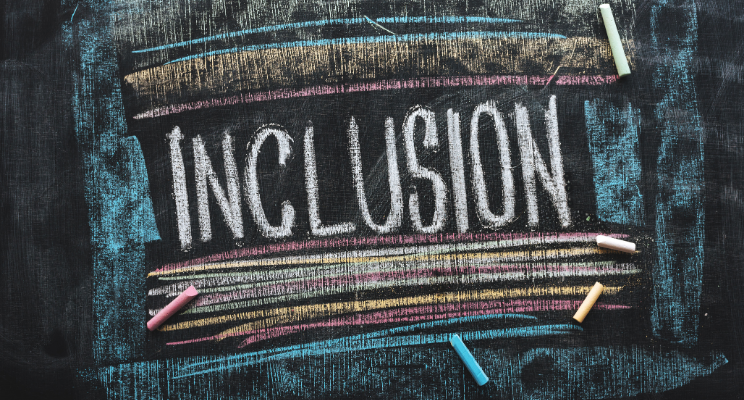
“Radical Inclusion” sounds big.
And yet, it often remains an empty phrase because we neither seem to apply it to ourselves nor wittness it in the world (too often).
So how do we become “radical inclusionists”?
A few things, I think:
- We have to make this choice: “I am willing to include everyone (+all parts of myself) in my awareness even if they are different, difficult or unclear to me at first. I will make an effort to understand them instead of judge.
- We become aware and practice including all parts of ourselves (especially the ones we don’t like or want) in our awareness. We learn to relate to parts of ourselves with empathy and curiosity.
- We extend what we learn within us to the world around us. We become aware of prejudices, judgements and internalised systems such as racism, sexism, misogyny etc. and how we unconsciously re-inforce them. Basically we start to care – boldly – beyond our little ego self.
- Where ever we see exclusion within or without, we choose otherwise and stand up for what’s right by voicing, confronting, empathizing etc.
To make this a bit clearer let me quickly give you a personal example.
I used to be very judgemental about myself which would not only have a huge effect on my quality of life but also on how I related to people.
I tried to exclude/banish many parts of myself because I hated how they made me stand out and different from the “norm”. Those were aspects like being awkward, highly sensitive, poor, “shockingly” skinny and really tall etc.
Unconsciously judging myself for these aspects would result in me judging other people who also had aspects different from the “norm”.
By excluding parts of myself for being different, I excluded people.
Or another example:
As a child I was fierce and rebellious at times which my Mom judged as rude and disobedient so I learned to not live out this aspect of me and it had to disappear into the shadows.
From then on it would only surface in crippled ways like:
Judging others who speak their mind, judging myself for voicing my opinion, holding grudges, growing resentment, fear of authority, going along with other people’s agendas, feeling disconnected from myself, feeling unheard etc.
In short: I had exiled an important part of my personality from my awareness and that had a huge effect on my life.
And until I would stop judging and start welcoming this part, I couldn’t feel whole.
Until I made an effort to include more of myself in my life, I couldn’t find the sensitivity or empathy for others.
So how did I get the exiled parts out of the shadows and back into my awareness?
This is where the practice of inclusion comes in.
I went inward and made contact with them.
Wait, what?
That’s right, we all had a conversation.
I asked each part many questions and got to know their intentions, opinions and feelings.
I put my inner judge aside and got deeply curious.
When I did that many of my emotions, triggers and judgements resolved themselves or settled down – immediately – and only appreciation and understanding remained.
I experienced what inclusion feels like.
This process takes time (months or years) to be complete but it will have immediate effects. Many people need a guided space held by someone they trust (I encourage you to find such a space. Also there are many processes that support the reconciliation with inner parts like “Inner Family Systems” by Richard Schwartz, “Inner Team Work” by Friedemann Schulz von Thun and more )
But…
if you make contact with your inner world in this way, not only will your life and relationships change but the world around you will, too.
If you meet yourself with the intention to include all of yourself, you will soon find yourself relating to the world in a whole new way: with deeper empathy and appreciation for everyone.
You’ll stop assuming and become interested in their experience.
Your awareness will grow into different realities and world views.
It will be encompassing enough to make people at ease in themselves.
You see, bringing the intention of inclusion to your own aspects is only one side of the coin.
What makes it radical is bringing the skill of deep listening, curiosity and openness out into the world.
Radical inclusion is a choice that outweighs judgement and prejudice everytime!
A choice we’re making not only to feel whole within ourselves but also to support every person to feel whole within themselves as well.
It requires us to make an effort to understand each other’s views and experiences, asking questions instead of making assumptions and questioning our own judgements. It requires us to become self-aware and willing to own our part in the union of the world.
Let’s ask ourselves regularly: “How can I include this (whatever is present in you or others) in my world/awareness?” And then letting the answer arise out of our depth.
Instead of wiping out the differences so the world fits into our tiny frame of mind we can actually celebrate them and expand our awareness.
Relief ourselves of ancient old burdens.
If everyone chose radical inclusion today, we would not only let everyone be who they are in all their facets but we would appreciate them. We would live in a world with genuine empathy and understanding. Imagine how beautiful that would be.
Making radical inclusion a part of our mind set and practice is bold but necessary.
Practicing radical inclusion is the catalyst for building a world of equals.
It’s actually doing the work – not just talking about it.
My wish is that, soon, our world is inclusive enough that we will ALL feel like we belong.
Let’s choose to be “radical inclusionists”, what do you think?
If you are curious and want to start the process of including all of yourself, I can support you with that – book a free sample session on my website or via: coaching@jennyfelicitas.de
Looking forward to connecting with you! Please bring all of yourself!
Love,
Jenny
The #1 question women ask themselves and how to answer it
The #1 question women ask themselves and how to answer it.

Here’s the #1 question that runs in the mind of many women:
“What’s wrong with me?”
This question arises mainly for women because the world doesn’t accommodate our natural cycles and needs that female in nature – it invalidates them.
As a result, we try to live according to the messages we receive from the world.
“Be better, do better and don’t be whiny.”
The world is infused with the desperate need for ever more power (over) and never ending productivity.
It responds to our needs for rest, restoration and play with the same answer each time: “Your needs aren’t valid”
And then we abandon them ourselves.
This linear world allows only very little room and our whole self never gets to come forth in its entirety.
Being continously productive is the norm for all living things (even cows who have to give milk until their udder bleads).
The thing that keeps this soul-less system going? Silence.
The silence about the consequences of this one-sided experience.
Silence that causes shame because we never hear anybody else having problems with the way we’re living.
Continuing to be exhausted, sad and productive as if that deserves a medal of honor shame has room to grow.
Ashamed of not being liked, of being too slow (in everything), of not meeting a target, of being unhappy when we shoudn’t be, of working part-time, of lacking motivation, of eating too much, of forgetting things, of wanting a romantic partner, of wanting children, of not wanting children, of needing to rest, of taking a nap, of drawing for drawings sake, of dancing instead of working etc.
In the end it has us think (silently): “Something must be seriously wrong with me if I need (X) or can’t do (Y).”
In essence we ask: “What is wrong with me?”
We project this question to everyday events (like eating, sleeping, talking, flirting, working, studying etc.) and into our (“failed”) relationships.
In my opinion the responsibility is misplaced.
How about asking the world: “What is wrong with you?
“What is wrong with the world we live in?”
This is a legitimate question.
It’s time to outsource the shame. There are consequences to allowing only half of an existence.
Stop taking all the responsibility for mistakes and flaws that aren’t yours.
Let’s stop asking ourselves if we’re defective or broken.
We’re not broken, we just live in a system that has us belief that we are.
And it has us believe that so we don’t see for ourselves that IT IS BROKEN!
WE WILL NEVER FIT INTO THE WORLD AS IT IS. Nature hasn’t intended for us to cut ourselves off of natural cycles and desire for rest and inclusion.
We must allow ourselves to feel the pain of living in a world that has forgotten how to be human, how to care about living beings and the earth at large.
The pain is real EVEN if no one acknowledges it.
It’s a world living in denial.
We can evolve into a more wholesome expereince of life in which our needs are honored and rest, play and art are celebrated.
I’m not the first one to say this, so please see this only as a reminder of what you already know.
The way to “be the change” starts simple.
Whenever you notice yourself asking: “What’s wrong with me?”
Let alarm bells wake you!
Stop in all that you’re doing and reflect:
- What role am I trying to play here?
- What am I afraid of?
- What standard am I trying to fill?
- What limiting beliefs have me doubt myself here?
- What do I belief about myself in this situation?
It’s really time to unveil the system and start living in tune with your WHOLE rythm including needs, play, intuition and magic.
Own ONLY your part of the problem – not the part of an entire world.
It’s time to reflect, really, what is actually working and what has to be released.
Why?
So we can be free of the unnatural burdens of striving for power over all things female in nature, the earth and everything that sparks magic in our bones.
Free to be our whole selves. KNOWING that nothing is wrong with us, we are perfectly whole.
What are the moments when you ask yourself: “What’s wrong with me?”
All the best,
Jenny
Why owning guilt is crucial for your relationships
Owning guilt is crucial for your relationships

We’ve created an immense fear of guilt to a point where our relationships suffer because of it.
We’re desperately trying to eradicate our conscience from our life that we cannot use it for better purposes and better relationships.
I am starting to realise that guilt is serving a purpose if we use it well and not let it use us.
But what amount of guilt is healthy and lets us remain in integrity with who we are?
Don’t get me wrong, I understand that too much guilt is paralysing and very unhealthy. It can cause us to tolerate what we should not be tolerating because we cannot see things clearly.
Guilt gains a lot of power if we allow it to. This is the exact reason that we’ve created this movement of demonizing guilt. We’ve started to be activists against guilt turned it into an enemy that is unpredictable and HUGE.
Yet, by fighting guilt and shutting it out all together we cannot hear it and its valuable feedback to us.
In order to be in thriving relationship with ourselves, with others and the world at large we actually need guilt.
Deflecting guilt is destructive to all relationships because we cannot own the behaviour that might be hurtful for others. We will keep projecting.
The trick is to remain conscious in meeting guilt face to face. We can learn how to let it teach us what we need to know in order to be the loving human beings that we are.
The requirements to master guilt and utilize it for our purposes are the following.
- You want to be a responsible person and are willing to change behaviour that doesn’t reflect who you want to be in your relationships.
- You want to face your shadows.
- You want to hear the truth about the impact you’re having but you also know whose opinion you value.
- You want to be in a conscious relationship and evolve in them and not use your relationships to fill a whole.
- You learn to differentiate between you and the voice of guilt so you can take an objective role and take the aspects that are valuable and useful and leave out the blame and shame of it.
Imagine this: You have a date at a restaurant with your partner and you come in late. Your inbuilt guilt will let you know that this is not ok.
Deflecting guilt would look like this:
Guilt will tell you that an apology is in order. You are unwilling to face the guilt. You will be involved with yourself and try to convince your partner that this wasn’t your fault and she/he shouldn’t be mad because (insert excuse here). You even convince yourself that you don’t have to really feel sorry. You want to be right rather than sorry. You cannot see the boundary that you have crossed. It’s kind of a “Sorry but…” attitude and it’s focused on yourself.
Being consumed by guilt looks like this:
Guilt will let you know it’s not ok and you agree and hand it all your power. You come in and are already beating up on yourself feeling like a victim to your circumstances. You keep apologizing and cannot arrive in the moment or be present for your partner who waited. Maybe you tolerate your partner judging you harshly saying things like “You always do this, you’re no good. Grow up” etc.
It’s kind of a -“Yes, I deserve punishment if not from you then from me.” attitude.
As you can see both will not strengthen the connection in the relationship but cause separation instead.
So what’s the best way to utilize guilt? How can we let it serve us?
Let’s look at the scenario again.
You are late and you feel guilty.
Owning guilt looks like this:
You know that being on time is your responsibility and you blew it. You know how to separate yourself from the guilt voice that will now be activated. It doesn’t touch your worth as a person, it touches your behaviour. You think about your partner who had to wait for you and the boundaries you cross by being late. You understand that this was not ok but things like that happen. You come in and you see your partner and his or her mood more than your own. You apologize accordingly and sincerely and wait and hold space for the emotions of your partner to come up and show themselves to you. You respond only to that. You allow for your partner to be mad for some time but you do not allow him or her to cross your personal boundaries either.
The attitude is more “I am so sorry I am late, I know it has crossed your boundaries and I understand that you’re upset, how can I make it up to you?” This enhances connection and trust and allows mistakes to happen and guilt to remind you that you can do better.
As you see mastering guilt is an internal job and it’s based on the 1-5 requirements. If you don’t want any of those you will not look guilt in the eye properly, you will not be able to use it to strengthen connection and trust in your relationships. You will not see your own shit.
What is your relationship to guilt currently and how would you like to shape it?
My health journey
My health journey
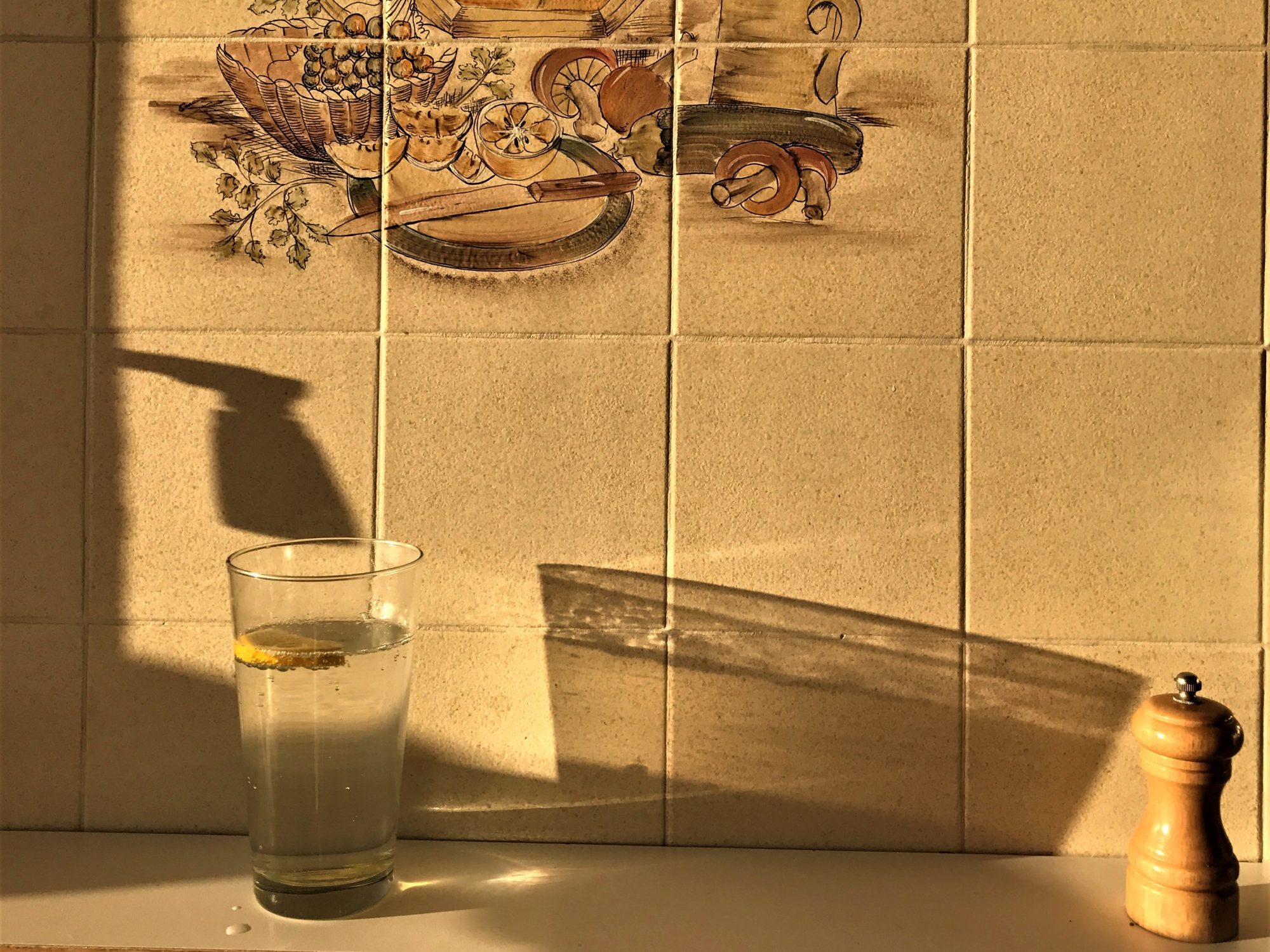
I am blessed to be living in a highly sensitive body which allows me to sense things others might not be aware of. On the flipside it also means my senses are easily overstimulated if I don’t protect or look after myself.
I am immediately reminded when I make poor choices.
In the early years of my life, I had very poor nutrition, didn’t work out and had bad sleeping patterns. I fed of bad movies and TV shows and barely read a thing.
I basically didn’t do anything to nourish my body, mind or soul.
The result was a (very) painful gut issue, an unhealthy relationship with food (me and food didn’t relate at all), bad irritated skin, and what I was most afraid of: ridiculous mood swings (PMS and beyond) which destroyed many relationships and had the biggest impact on the one with myself.
Until I finally took responsibility for my health and well-being and started educating myself.
I went to university to study nutrition and read everything labelled as healthy that I could get my hands on (it’s a lot of information out there let me tell you).
In addition to the training of mind and body, I did high intensity workouts on a daily basis.
I ate (very) strictly clean and in regular Intervals, my whole body changed rapidly and I became obsessed with improving my “health”.
But I took the whole self-work too far, meaning I was not working on being healthy anymore, instead I was working on being perfect.
That had created extreme tension within myself and drained my energy to a point of a full stop. I was after something that doesn’t exist and I wasn’t aware of it.
As my body and mind were highly overstimulated by all the information (transformation/obsession), I didn’t know at all how to eat or be anymore.
I was completely lost.
I was smoking marijuana almost every day, only so I could get a break from the prison (meaning no pleasure aloud) I had created.
Whenever the relaxation kicked in, I binge ate to a point of feeling sick and ashamed (which felt better than my own control).
An injury forced me to stop working out which was really the straw that broke the camel’s back.
The collapse of my “healthy” life that I had worked so hard for and that I had desperately wanted to maintain, triggered the greatest longing I’ve ever felt.
More than ever before I just wanted to be safe and strong again. As my body couldn’t provide any longer what I was in need of, there was absolutely nothing to hold onto.
Lying in bed, feeling depressed and in no condition to do anything. I was puzzled. How could that happen to me? When did I loose control?
After all, I knew so much didn’t I?
Not knowing that the problem wasn’t me or my lack of discpline.
The core of my unhappiness was a part of me I had totally neglected – my inner child, the realm of feelings, fun and creativity.
But before I could really embrace all of my past and feelings more time passed.
After some time of trying to recover mentally and physically with conventional methods, I found myself intuitively guided to the spiritual realm of my being.
I never believed myself to be spiritual nor did I ever come in contact with it before. I actually judged it as hocus pocus and weird.
I started yoga and meditation and began to be interested in teachings of several enlightened masters.
I felt so calm listening to their perception on life and I found comfort in the tone of their voice. They seemed to be content with being unsure. They were happy no matter what. What was their secret?
And with that I had found a new quest.
Again I wasn’t saved from my old controlling mind as I was still working on being perfect. This time spiritually.
At first this had worsened my conditions, not only were ups and downs still present but strained me more than ever before.
Meditation opens you up so much and provides so much energy, it was hard for me to handle, as I went into it without instruction. So again, I found myself at a point of a near breakdown.
I stopped just in time.
Slowly, but consistently after cutting down work hours and reducing meditation, yoga and social events, I started to balance my life again.
What my friends tried to tell me all along, I had to fully realise by living it: too much of anything is not good for anyone (that includes things that are supposed to be good for you).
After this accessed energy had settled, it all started to make sense to me. Not in a way of “oh, yeah, I get it”
More like: “OHH MYY GOD. How could I possibly miss this?”
I realised that I was measuring my sense of self-worth by the degree of discipline I managed to hold (perfection meant perfect worth) when in fact, I am worthy now without having to do or prove the tiniest thing.
I had to go through all this intense pain, into the extremes and impermanence of my health state only to discover that I am more than my body and mind.
I was the Safety I was longing for and I had to realise that no self-improvement nor body-image can be in any way sustainable (let alone enjoyable) without sincerely loving and accepting myself – just the way I am.
This meant embracing my inner child.
When I began to really see and love my inner child, nothing else mattered (relatively spoken, of course). I embraced emotion again and gave them top priority.
I stopped trying to know, stopped trying be right which is key to self-love.
Every (health) rule I follow now, is approved by me, born out of the intention to do best for my body, mind and soul.
I am considering the effects on every area of my Being as well as the effects on others and the world. This kind of responsibility is true pleasure for me.
Trusting in my abilities as my own health coach and respecting my body are the keys to the intuitive nutrition I choose today.
Since I have sincerely started listening to my body AND integrated emotions, healthy food choices began to come naturally ( as you know now it did not happen overnight).
Here’s my simple but meaningful take away:
If you want to self-improve don’t forget to love yourself more.
Actually, start with that intention only and everything else will fall into place.
This journey isn’t always easy or likeable as you’ll discover the depth of your hidden fears (which you often want to compensate with food and more control). Yet, I can reassure you, that going inward for answers is the only adventure that satisfies your appetite and it’s so worth it because YOU my dear, are so worth it.
Health is never complete when happiness and pleasure are absent, so it is important to remember you deserve to feel loved and blessed and cherished and most of all happy all the time. No matter your habits, shape or level of discipline.
I no longer follow rules of punishment whenever I slip. No one should because, well, it doesn’t work! It never will.
Let’s break the restriction cycles! All of them!
We are abundant beings we need no restriction. We need pleasure!
Now that we know what it takes to be healthy, let us take responsibility and set the intention now to be as healthy as never before. Let’s have the courage to do our best and the grace to accept that our best will differ from day to day (yes, bad days are totally fine).
But above all let us choose LOVE first!
Thank you for taking the time.
Love,
Jen
Train your voice, train your soul
Train your voice, train your soul
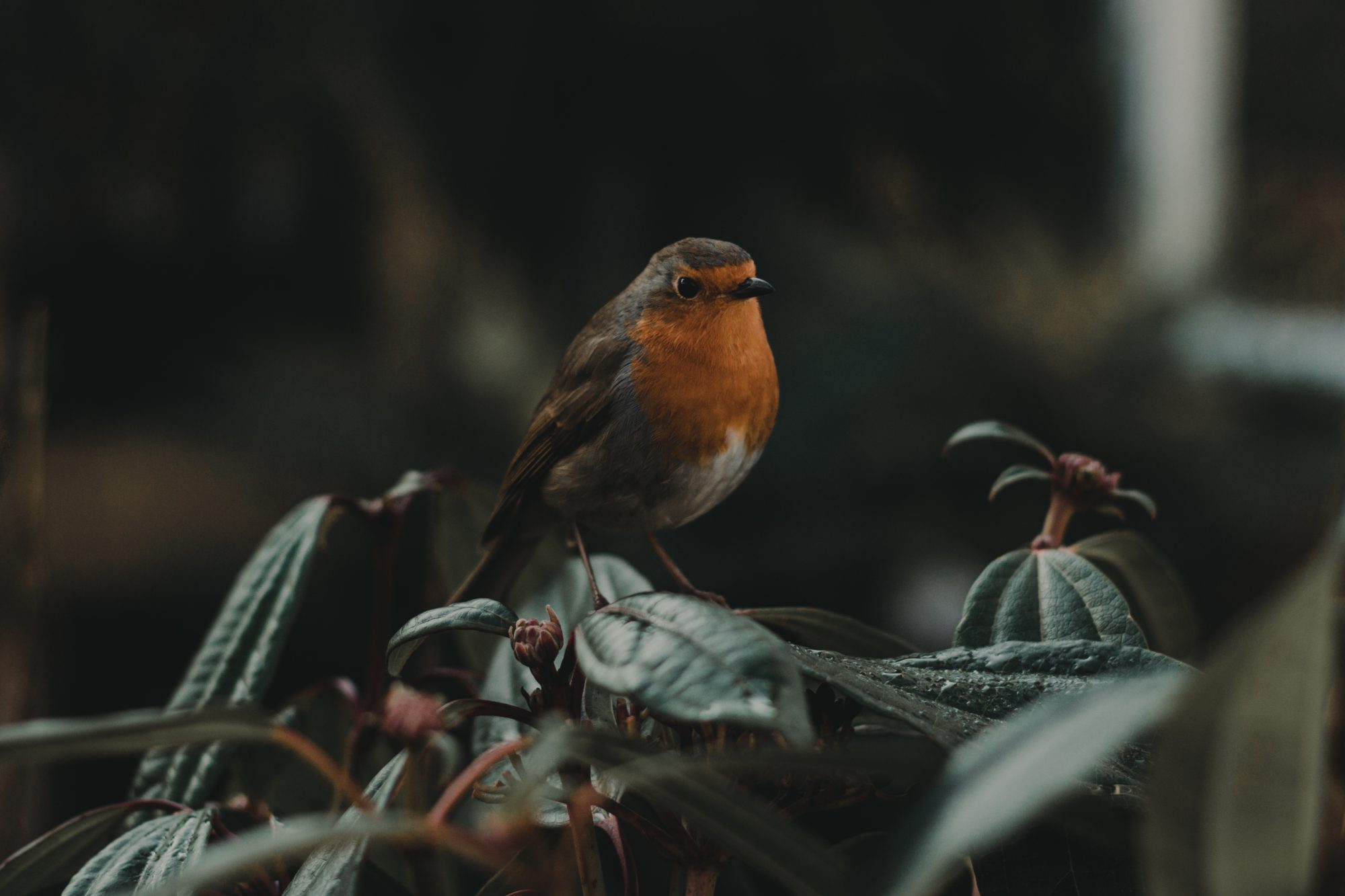
Singing has transformed my life and the way I am in the world. I would go as far as to say it might even be better than therapy.
When I grew up I used to sing A LOT. However, I was laughed at and told that my voice was annoying.
In addition, I was traumatized by TV shows in which the contestants are ridiculed for showing up with an average voice.
Yes, I loved singing but I became terrified to be heard.
I’ve learned that if you’re not good at something you shouldn’t pursue it, I mean, what’s the point if you won’t make money of it?
Fast forward to today: Every Friday morning I take singing lessons. It started out with the intention to read poetry to a small audience. I thought that no one would want to train my voice to sing because there was no hope.
I suspect that this was a pretext from my soul to get me enrolled and start singing again.
My teacher Lily is amazingly intuitive and highly knowledgeable. She naturally has deep love and respect for the Voice which she talks about as if it was the most sacred thing in the world. My soul awakens in each session.
When I start singing, Lily knows exactly in what mood I am in, what my voice needs and sums up my whole inner life situation just by listening to my first tone.
Lily has taught me how to work WITH what’s here instead of AGAINST it.
She never tries to change my voice but see what’s possible at any given day, never asking too much and never too little. She accepts my moods and knows how to turn fatigue into growth of muscle.
She knows how to balance out my edges and I never leave a session the way I came without ever talking about my private life.
She does it all in a very practical way.
What you basically do is you train your muscles to carry your voice.
Training the whole vocal system to communicate and work in harmony again. I am always surprised how a simple twist in breath, posture, angle of my tongue etc. is bringing forth a whole new facet of my voice.
What I’m most fascinated by are the parallels to my inner journey which are undeniable. Here’s just one example of how my voice reflects my patterns:
I am at a stage of rapid growth at the moment. I am seeing parts of my personality in action that I didn’t even know existed, this is a great sign of expansion. But sometimes I catch a bit of my limited mind and I shrink back into familiar territory because I don’t identify these wonderful personality traits as me yet. Does this sound familiar?
And it’s the same with my voice. I sometime hit a note that I wasn’t able to catch before and I surprise myself so much that it’s causing me to tighten and shrink into the smaller voice I know. I am afraid of just letting go and trusting my newly trained muscles to carry my voice consistently. It’s basically a constant balance between training the muscles and then surrendering to them.
I am learning through singing that as I train my muscles – spiritually, mentally, emotionally, vocally- I will always discover new traits and new notes and to be able to use them on a consistent basis I simply have to identify them as me.
I guess this is a recommendation letter for you to take singing classes. When you train your voice, you train your soul.
Love,
Jen
Ecstasy – why we deny our right to be joyous
Ecstasy - why we deny our right to be joyous.
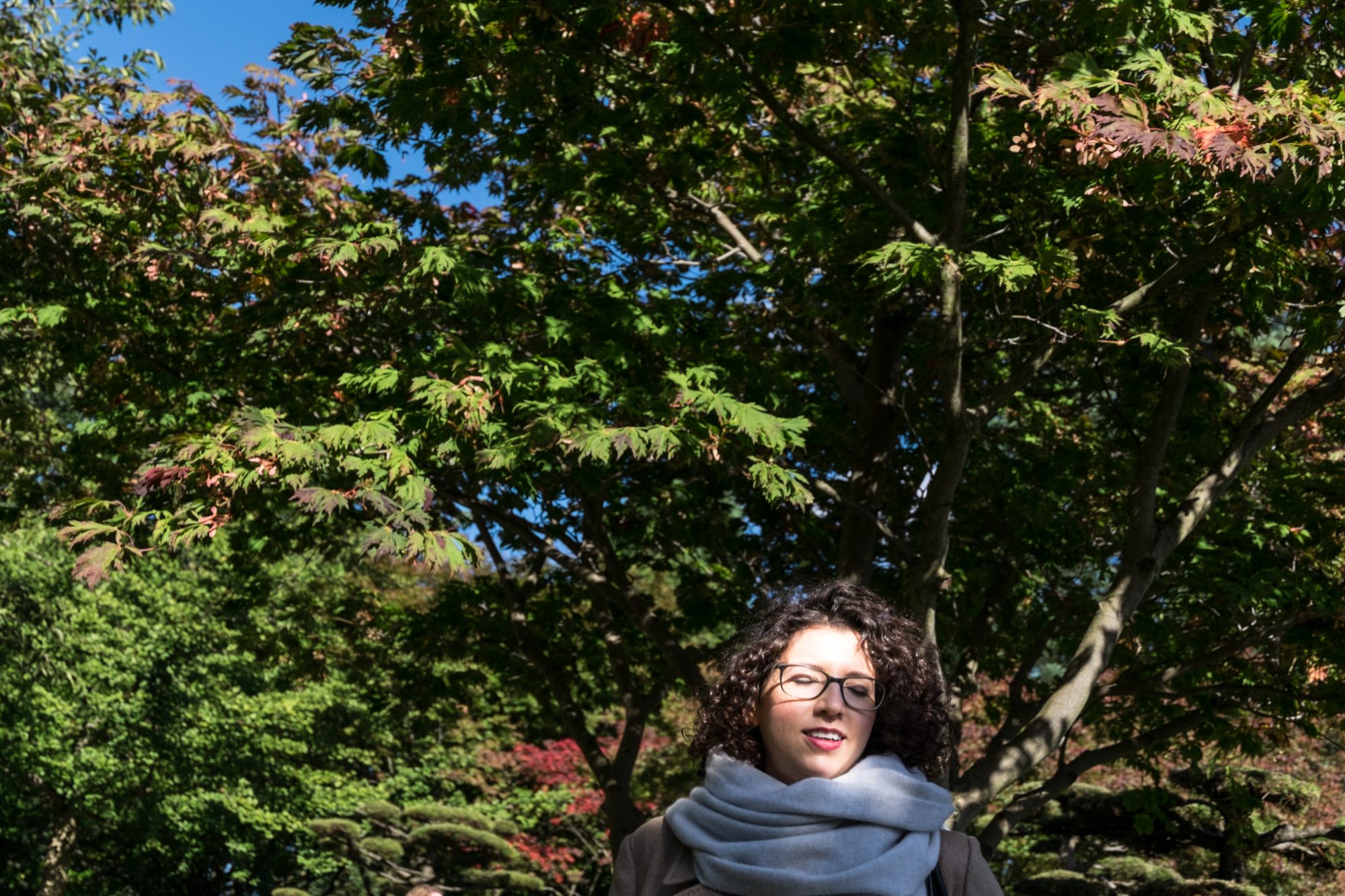
Ecstasy from the root ex tasis – to stand outside oneself. We all thrive for it. Mostly unconsciously and – unfortunately – from the wrong angle.
Joyous reality is banned from our conscious mind and our “normal” human experience.
We’re more familiar with its substitutes: addiction (in all forms), violence, rage and terror.
But why are we so afraid of the real thing? Much more even than war and terror?
Because the way we translate an experience of ecstasy would be
LOSS OF CONTROL.
We know in order to experience the pure joy of ecstasy we must be “out of our minds” and that is a sign of weakness in this world, isn’t it?
Let’s understand though: Ecstasy is the energy of an archetype we’re all hosting within us.
We’re all designed and meant to experience pure joy.
According to C.G. Jung all archetypes must express themselves through us at some point. Either freely through joy and ecstasy or through neurosis and addiction.
The questions are then how much are we conscious of this archetype and how much are we allowing to come through?
Why are we denying our need for ecstasy with all our might?
- In order for us to allow ecstasy we must hold a strong charge in our body. We actually have to surrender to the energy called joy that’s passing through our bodies. Surrender is the key word here. In a society that values logic, calculations and science more than the primal and spiritual sides of our being, surrender is a dangerous act and irrational to the core and so is joy.
- We haven’t learned to integrate the female- into the male aspects of our psyche. And the prerequisite for ecstasy is the union of both aspects – we must transcend the opposites within ourselves. We’re living the patriarchal forms of humanity as if it’s the only reality there is, we are denying the world of symbols and rituals – the world of the feminine – which is the world through which we reach the irrational nature of joy. The key is not to favour one side over the other but to value both realities equally so they can supplement each other.
- To be able to accept ecstasy as an integral part of our life, we must be willing to see beyond ourselves, beyond our limited mind into our soul. We must understand that we’re a small part of a greater reality that we know very little about. If we can accept this we move past our ego mind into a greater mind which is the source of all human archetypes. In this greater mind found beyond our current meassure of reality, do we experience these archetypes in the way we are supposed to. In this greater mind we are able to hold more energy than in the limits of the ego mind. In a society in which individuals compete and thrive to be the best, the idea of being a small part of a greater whole is frightening and preposterous. You can stay limited like this your whole life but you will not experience joy like that.
- We’re afraid that we get lost in the archetype of ecstasy and live too much of its energy. We are afraid to become mad. The thing is though: We as human beings we are meant to live more than one dimension and more than one aspect of our being. We aren’t as simple as we somehow see ourselves and yet easier to understand than our minds have us believe. This is the paradox of being human. In order for us to live all our potential we have to be open to getting lost in the energy of joy and ecstasy trusting that we will come out of it more alive and recharged. We must trust that we will live in a way the universe has intended for us.
How do we compensate the denial of joy?
We pretend that we’re in no need of such ecstasy and if we cannot bear the torture of a dry and logical life any longer we go around at night hiding from “daily-life-people” while being “out of our minds” drunk.
Or on a higher scale, we burry the need for ecstasy even deeper into the unconscious and, as a consequence, become addicted to a certain kind of substance, emotion, habit, person. We attract all kinds of drama, accidents, relationships that fulfill the requirements of very strong arousal without ever satisfying our souls need for the original type of ecstasy – our souls need for pur joy.
Or we become restless. We cannot arrive anywhere with anyone because we keep seeking unconsciously the inner ecstasy that wants to express itself through us. We seek it through the excitement of the unknown and the new.
Can we become addicted to living an ecstatic life?
I sure hope so.
If we do see ecstasy through our right (whole) mind there is nothing wrong with expressing and allowing it. In fact, I am even writing this article with the wish for it being a reality for us all.
When we’re addicted to pure ecstasy we are addicted to experiencing ourselves – addicted to being fully alive.
We’re willing to be close to ourselves and accepting more of our being. We’re integrating the female aspects of being. In other words we’re bringing together what belongs together. When we’re allowing ourselves to be joyful and ecstatic we ARE the embodiment of union and wholeness.
How do we start integrating ecstasy into our lives again? What are the steps to live our full potential?
Remember it’s a way to bring back the spiritual into the physical and to unify the female with the masculine.
Not just logically but with your whole body. THIS WILL TAKE PRACTICE, CONSISTENCY AND THE WILLINGNESS TO BE ALIVE.
Before we start this is the ground rule:
The only way you can ever experience ecstasy is when you open your mind to a new possibility of living.
Are you willing to transcend the survival mode and expand into a life that thrives?
- Prepare the vessel.
Even though ecstasy is beyond the body you can only experience it through the body. Make sure you prepare the vessel to be strong and flexible to hold new energy currents. You do so by 1. Nutrition and 2. Movement like yoga or dance which can become fully ecstatic in itself.
- Become mindful
Of what you are doing and consuming. Do not distract yourself with too much of external stimulation and consumption. Learn about the amount and things you really need. This is slowing down and becoming fully present to the moment in which you’re in.
- Meditate
This is how we expand the capacity to hold more energy and discern between your original energy and the energy of your past.
- Using rituals
Of letting go and amplifying more of what you want. Be consistent in doing so, it’s the only way that the habit of letting go can sink into the unconscious and become a habit of mind in your daily life, outside of rituals.
- Mental health
Train your mind to be your servant. The number one obstacle to experience ecstasy is your mind and its limits. If your mind is open to pleasure and joy you will experience ecstasy naturally. There are several ways to train your mind and bring it back to health and full capacity. The above are all a contribution to it. What I would add are affirmations on the one hand and on the other hand deep psychological understanding in general and specific to your gender.
- Free and integrate emotion
When we have unprocessed emotions or trauma stored in the cells of our body we don’t feel save to let go and surrender the higher mind and to the higher experience of ecstasy. Our body informs us through old emotions about the possibility of danger as soon as something new approaches and in the presence of danger we will not be ecstatic in the archetypal sense. We will again live out ecstasy by expressing intense anger, madness or fear in response to the interpretation our traumatized cells
- Visualise
Your future self and the way you want to be in the world. See yourself in full pleasure and purpose and allow for this to happen. Your mind might be very loud when you try to imagine yourself in ecstasy and that’s the exact point we are trying to make here. As long as your mind holds against the possibility of experiencing yourself in your highest form you will not do so. If you keep brushing this off it will not happen. So using your creative force aka imagination will create the experience ahead of the experience and you will allow ecstasy and joy into your reality.
8. Draw, Paint, Dance, Sing
Just for the fun of it.
Are you convinced now that you own the right to pleasure?
And are you willing to allow it?
If you find yourself having resistance against the very idea of pleasure, this might be a good sign that you are really in need of it. Let it come. You’ll be fine.
Love,
Jen
Dear resistance – a letter
Dear resistance - a letter

Dear fear/resistance,
I used to fear you, fight you and run away from you.
Then I tried to prove to you that I am stronger, smarter and more awake than you. I am, don’t get me wrong.
The thing is just today I am realising that I am much more than that, too. I am more than what I am in relationship to you.
I no longer need to compare myself to how well I do not letting you run my life. This does not determine my worth, my strength, my identity.
I no longer need to prove to you who I am. You know, I know.
So I want to stop the fight with you.
Because to experience “more” of me, I need you. I hate to admit it, but you are actually a very important part of me.
I know you will be here forever.
So the question is how do we want to live together?
I guess I want to put some ground rules in place. Things you need to know.
- I want to live my life – I know that you won’t change but I will. I will not follow your way blindly. I will get stronger and stronger every time you stand in my way.
- I know that you don’t want to bring me down but make me stronger. I know you serve me and I want to stay grateful to you for this (in an exceptional way).
- I am not my mother. You are the same in her as you are in me but I have tools she didn’t have
- In case it’s not clear enough yet: You are part of me and that’s cool.
- In the moments you show up, I will always hate you and I will feel smaller than you. I am learning and I am doing my best to stay centred or come back to myself if I don’t.
- You’re the cause of all my discomfort. I know there are things more important than feeling comfortable. And on the other side of you is the comfort that I really want.
- I want to walk the path of least resistance which means I want as little contact with you as possible.
- I decided to follow my soul and she is bigger than you, please understand this. She will always win.
With this letter I honour you. I choose you like you have chosen me.
Dear fear, I am curious what our new start will bring.
I am stronger than ever before and I know that you know this.
Don’t worry, you are in good hands.
An empaths guide to a stronger sense of self
Strong sense of self or weak ego: an empaths guide to a stronger sense of self

What is a sense of self?
A sense of self is a culmination of ideas you hold about yourself as well as experiences you’ve had that shaped the way you see the world
aka ego.
Whether conscious or unconscious there is a story you tell yourself that describes “you” to you.
Makes sense?!
If the image someone holds of you is stronger than your own sense of self, you are easily lost in the mind of another.
an example for a weak ego.
And what makes a sense of self strong?
A strong sense of self is made up of strong boundaries, self-knowledge and high self worth
aka conscious ego.
A strong sense of self doesn’t come easily for empaths – it must be created.
Let me tell you why.
Empaths with a weak ego can’t just get up in the morning and do what everybody else does.
They must get grounded in themselves and create boundaries that allow for a strong sense of self to grow.
Before we dive in deeper let me first explain what an empath is.
An empath is someone with an extraordinary ability to sense what other people feel.
Yes, of course that’s not always 100% acurate and to believe it is is simply false.
Especially when an empath has a co-dependent style of relating. Co-dependents carry their own projections and trauma that can and will distort their perception of someone else.
This post does lean on co-dependency in some form or another because an empath with a weak ego can also have a co-dependent style of relating but doesn’t nessecarily have to (I will do a seperate post on co-dependency in the future).
All that said, empaths, despite the possible inacuracy of their interpretation, do have an extraordinary amount of empathy which means they understand almost everyone’s struggles, action and choices by seeing and feeling them through their eyes.
This is a beautiful capability but without boundaries it often leads them into taking on EVERYONES struggles in order to soothe and heal them.
This is too much to ask of anyone.
So their strong empathy needs equally strong boundaries.
Because, as I’ve mentioned earlier, boundaries create a strong sense of self.
They indicate where you end and the other begins.
Many empaths with a weak ego struggle to stay close to themselves when in the company of other people.
Why?
When they naturally feel into others more than the average person they’re often forgetting about themselves or that they even have an opinion.
This is an example of a poor boundary.
And that’s how they often confuse their own sense of self with that of another.
An empath with a weak ego might leave a conversation not having paid any attention to themselves the entire time.
They forget or neglect completely what they actually want to say only to “wake up” afterwards and regret how they behaved and the things they said or didn’t say.
Let me be very clear: Having a weak ego as an empath isn’t a good thing.
And it only feeds into the narcissistic society we already have created.
But before we throw around with over-used words let’s look at some examples of how a weak ego could look.
Remember the last time you left the house feeling beautiful, sexy, attractive and simply good about yourself.
You felt you could take on the whole world, meet new people and wished you’d see your ex today.
Then you left the house and…
…the first person you meet on the streets gives you a seemingly weird look. “What was that?” you think “Oh well, it shouldn’t bother me” you tell yourself.
But it does.
What the hell happened?
You have let them steal your sense of self.
This is a rather harmless example when in fact a weak sense of self can, in varying degrees, cause a lot of suffering.
Let’s look at a different example.
Let’s assume you are in a relationship with someone who is more likely to TAKE affection, attention and listening than GIVING it.
Empaths with a weak ego often find themselves in this sort of dynamic especially when they have a co-dependent style of relating.
This isn’t necessarily a bad thing but it can be, depending on the degree.
Whenever you tell them something personal or ask them to meet your needs in some way, they respond with ignorance or withdrawal and you in turn see through their eyes and…
try to understand.
You usually wouldn’t think it’s so bad to ask for xyz but their reaction clearly indicates that you must have been asking for too much.
And you start questioning yourself.
You start questioning if your own need to be heard and seen is inappropriate, you question wether or not you asked for too much and how to be a more giving partner next time.
You take on their contempt, their judgement and their unwillingness to give you what you need and you start seeing yourself through their eyes.
And just like that, you’ve let them cross all boundaries.
You have given up your sense of self.
Now, this can be solved if your partner is up for it but it is only possible when you create a strong sense of self so you can start relating differently to them.
It all sounds like to much? Or to vague to apply?
I get it. I’ve put down some steps you can take in order to create a strong sense of self.
If you’ve read this far you’ve made the first step away from a weak ego to a more solid sense of self.
YAY!
Knowing about this tendency will help you as you make the changes necessary.
This is the work every empath has to do in order to thrive.
How do you do that?
- Become aware of it (done here and now).
- Write down all the beliefs you hold about yourself.
That’s not necessary to do in one go, simply start. Use a blank page and write down all the beliefs you can come up with. There will be some shocking ones, guaranteed for example “I am poor”, “I am not special”, “I am ugly” “I am too sensitive”, “I have to do xzy to be loved.” etc. simply notice and be aware that those are only beliefs and we’re about to change them.
- Now take the ones that have the biggest effect on you and turn them around.
Maybe use “The work” worksheet by Byron Katie free on her website or simply state the opposite. It won’t feel good, yet. It’s not enough by itself but it’s a good start. Continue with the other exercises.
- Meditate first thing in the morning
In order to separate yourself from an old or false sense of self you need to practice detaching from thought. Every morning 10-15min is enough. Why morning? Because then your sense of self is still untouched by the outside world and it’s easier connect with yourself.
- Get professional support
I always emphasize this one because I’ve been the one who used to never asked for help. I wouldn’t say I regret it but…I do. Help makes the path much smoother and easier. Whether it’s a coach, energy healing or therapy or something completly different. Feel what you’re drawn to and make that choice with full commitment to heal. If you feel drawn to work with me you can contact me here.
- Talk about it
Set up a group with other empaths that focuses on empowerment. Talk about ways you can connect and support each other on overcoming the influence of the world on your sense of self. It’s crucial to surround yourself with the right people if you want to become rooted in yourself.
7. Self-Love
I will not suggest anything specific here. I could not know how love looks or feels like for you. I will however suggest that you find out what self love really means to you!
AND LAST BUT NOT LEAST:
8. Boundaries
We’ve now made it very clear that in order to heal and build a strong sense of self you need to have strong boundaries. Find out what you truly need, see what you do to abandon those needs and place your boundaries there – firmly.
This is hard inner work and I honor you for being here.
Remember that you’re not alone in this.
A weak ego is something many empaths deal with.
The way to recovery can actually be an enriching and an empowering experience.
I’m with you in this.
Love,
Jen
